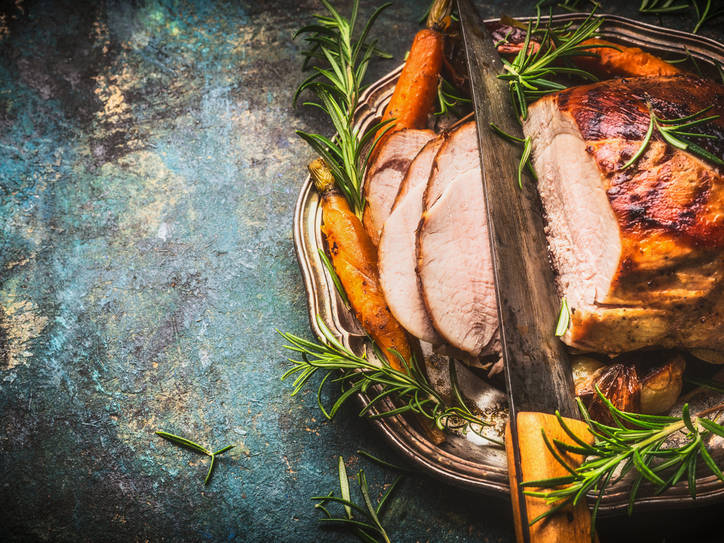We all know that food goes bad over time, but did you know there are ways to store it, so it lasts longer? There are also certain foods and items that you should always store together to keep them fresh. Here is a guide on storing your food and organic items safely. So that they last longer and stay fresh, keep these tips in mind the next time you go grocery shopping!
Table of Contents
Buy Local & In Season
One of the best ways to ensure that your food lasts longer is to buy local and in-season produce. When fruits and vegetables are in season, they have a higher water content which means they will spoil faster. However, buying them locally will help them to retain their freshness longer. Always check the labels on your products to see where it’s from. If it’s not local, try to find out when it was picked. The fresher, the better!
Plus, local produce is typically less expensive than out-of-season options. Additionally, organic items are often more costly than their non-organic counterparts, but they will last longer because they haven’t been treated with chemicals. Besides buying local and in-season, storing it properly is another way to make your food last longer.
Refrigerate Fruits & Vegetables
Fruits and vegetables should always be refrigerated, as this will help to prolong their shelf life. Place the crisps in the fridge’s crisper drawer to keep them fresh and crisp. They’ll stay fresher for longer if you store them in this way. It is also a good idea to wash them before refrigerating them, as this will remove any dirt or bacteria that could cause them to spoil.
If you’re using dry leaves, completely dry them before storing them. Excess moisture will accelerate the deterioration of these dried flowers. As a result, it is best to consume washed and dried fruits and vegetables within two days. But remember, some fruits and vegetables, such as bananas, tomatoes, potatoes, onions, and garlic, should not be refrigerated.
Check Your Refrigerator Temperature
Keep in mind that the refrigerator is your primary tool for keeping food fresh, but first, make sure the temperature is correct. You might not realise it, but your fridge temperature could be the reason why your food is going bad so quickly. The ideal refrigerator temperature is between 32 and 40 degrees Fahrenheit.
Your food will spoil faster if your fridge is set higher than that. To check the temperature of your refrigerator, use a refrigerator thermometer and make any necessary changes to the controls. Besides the fridge, other places in your kitchen affect the temperature of your food. Keep in mind that the warmer the temperature, the quicker food will damage.
Don’t Neglect The Cleaning Process
Many people believe that as long as the refrigerator shelves are kept clean. However, this isn’t the case! Your fridge’s interior should be cleaned regularly. This means wiping down the walls, shelves, and door gaskets. All of these areas can harbour bacteria and other contaminants that can cause your food to spoil.
Cleaning the refrigerator may seem to be a tough task, but it does not have to be. Set aside some time every week or month to do a thorough cleaning. It’s also a good idea to clean up any spills immediately, so they don’t have a chance to harden and become difficult to remove.
Use the Right Storage Containers
As mentioned before, it’s essential to store your food in airtight containers is critical. Keeping the food fresh and bacteria-free is easy with this method. There are a variety of storage containers on the market, so shop around to find the best stash jar for you.
If you’re looking for an eco-friendly option, there are now reusable storage containers made from silicone. These are an excellent choice since they may be used often and are simple to maintain.
Another great choice is glass storage containers since they’re both sturdy and straightforward. They can, however, be rather hefty, so keep that in mind if portability is a concern.
Check Expiration Dates
One of the most vital things to determine concerning food storage is to check the expiration dates. Food in a container isn’t any more likely to last forever than food on its own. Each food has a different shelf life, and it’s essential to know how long each one will survive.
For example, eggs can last for about a week in the fridge, but milk lasts only about five days. If you’re unsure how long a food will last, check the expiration date or do a quick Google search.
You can assist your meals to remain fresh for longer by following these guidelines. You may save money and avoid waste with a little effort.
Conclusion
As you can see, there are a few simple steps to extend your food’s shelf life. Keep in mind that the fridge is your best friend regarding food storage. Keeping the temperature constant and cleaning your equipment regularly will help keep food fresher for longer. We hope you found this article helpful and will start using these tips to keep your food fresh. Thanks for reading!












